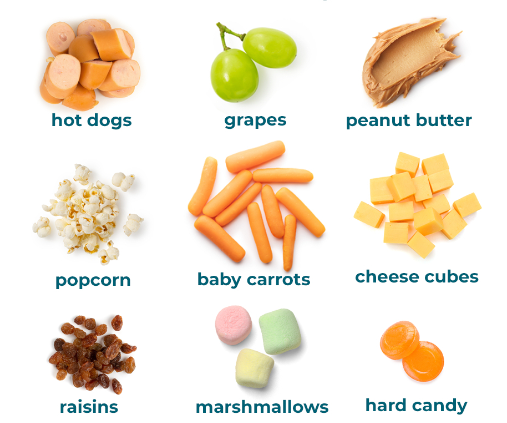Toddler Eating Habits 12months-24months
Nutritional Needs
A 1 yr old needs about 1,000 calories divided between 3 meals and 2 snacks per day
Your child’s serving size should be approximately 1/4 of an adult size serving
The require the same basic nutrition groups as an adult: Grains, vegetables, fruits, dairy, protein, legumes
Do not restrict fats, just make sure you are offering healthy fats
Whole milk is recommended for children 12-24months (or a milk alternative if allergic) unless your doctor states otherwise
Cow’s milk for 12-24months: 16oz/day
Continue to offer water
Water intake for 12-24months: 8-32oz/day
Avoid juice and other sugary needs
Picky Eating
It is perfectly normal for your toddler’s eating habits to seem a bit all over the place. They are developing a sense of independence at this age so they may become attached to one food, refuse a food they used to love, or refuse to try new foods. This is all normal. Continue to offer them a variety of healthy food and they will decide what they eat and how much. Try not to stress about the amount of food they eat, if they are growing well at their doctor’s visits then they are receiving the calories their body needs.
To make meal times easier, try to stick to a routine, offer a variety of foods (new foods alongside familiar foods), don’t force them to eat, and be okay with them making a mess as it is part of their learning process to learn to feed themselves.
Discontinuing the Bottle
Complete weaning of bottle feeding should be done by 15-18months. Try to drop the bottles one feed at a time to allow the child to adjust. A cup of milk should be offered with each meal to create a new routine for the child. Continued bottle use at this age can lead to poor dental health.
Sample Menu for a 12month-24month
Breakfast: 1 cooked egg, 1/2 sliced banana, 2 strawberries, 1/2 cup of milk
Snack: 1 slice of toast with peanut butter, water or 1/2 cup of milk
Lunch: 1/2 sandwich with meat/protein of choice, 1/2 cup of vegetables, 1/2 cup of milk
Snack: 2oz of string cheese, 2 tablespoons of fruit, water or 1/2 cup of milk
Dinner: 2-3oz of protein, 1/2 cup of vegetables, 1/2 cup pasta, 1/2 cup of milk
They are still at risk of choking hazards
Do not give peanuts, whole grapes, cherry tomatoes, whole carrots, popcorn, whole hot dogs, hard candies unless cut into small pieces
Only allow to eat while seated as eating while on the go can increase their risk of choking
For specific concerns about your child’s nutrition or growth, consult your pediatrician or a registered dietitian.





